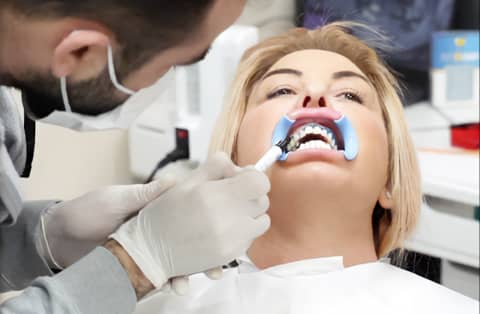Welcome to the world of weight loss surgery in Turkey, a transformative journey for those seeking a healthier and more fulfilling life. In recent years, Turkey has emerged as a leading destination for medical tourism, especially in the realm of bariatric surgery.
This guide is designed to walk you through the essentials of weight loss surgery in this beautiful country, focusing on safety, quality, and the overall patient experience.
Why Choose Turkey for Weight Loss Surgery?
- Affordability Without Compromise: One of the most compelling reasons to consider Turkey for your weight loss surgery is its cost-effectiveness. But, let’s be clear – lower costs do not mean lower standards. In Turkey, you can access world-class medical care at a fraction of the price you’d pay in many Western countries.
- State-of-the-Art Medical Facilities: Turkish hospitals are not just buildings with beds and operating rooms; they are centers of medical innovation, equipped with cutting-edge technology. Imagine walking into a facility where the fusion of traditional hospitality meets modern medical excellence – that’s what Turkish hospitals offer.
- Expertise You Can Trust: Turkish surgeons are not just doctors; they are artisans of the human body, many of whom have honed their skills both domestically and internationally. Their expertise is a tapestry woven from years of rigorous training and hands-on experience.
Types of Weight Loss Surgery Available in Turkey
Gastric Sleeve Surgery (Sleeve Gastrectomy):
Sleeve gastrectomy involves the surgical resection of approximately 75-80% of the stomach, transforming it into a tube or sleeve-like structure. This procedure significantly reduces the gastric volume, leading to early satiety and decreased appetite. The resection also impacts gastrointestinal hormones like ghrelin, further contributing to weight loss. This restrictive bariatric procedure does not involve any bypass of the intestinal tract, thereby minimizing risks associated with malabsorption.
Think of your stomach as a balloon. Gastric sleeve surgery essentially removes a portion of this balloon, limiting its capacity. It’s like downsizing from a family-sized dinner plate to a salad plate, helping you feel full with less food.
Gastric Bypass Surgery (Roux-en-Y Gastric Bypass):
Roux-en-Y Gastric Bypass (RYGB) is a complex bariatric procedure that combines both restrictive and malabsorptive elements. It entails the creation of a small gastric pouch (approximately 30 ml in volume) and its anastomosis to a segment of the small intestine (Roux limb), bypassing a significant portion of the stomach and duodenum. This alteration not only limits food intake but also induces changes in gut hormones that suppress hunger, enhance satiety, and reverse one of the primary mechanisms by which obesity induces type 2 diabetes.
This procedure is like rerouting a busy highway. The surgeon creates a small pouch at the top of your stomach, connecting it directly to your small intestine. This bypasses a significant portion of the stomach and intestine, reducing calorie absorption.
Gastric Balloon Surgery (Intragastric Balloon):
The intragastric balloon procedure involves the endoscopic placement of a saline-filled silicone balloon in the stomach. This balloon occupies a substantial volume within the gastric cavity, thereby reducing the functional capacity of the stomach and promoting a feeling of fullness with smaller food portions. It’s a temporary, non-surgical intervention typically indicated for patients with lower BMI or as a pre-surgical weight reduction strategy.
Imagine inserting a small, deflated balloon into your stomach and then inflating it. This balloon occupies space in your stomach, making you feel fuller with less food.
Mini Gastric Bypass Surgery (One Anastomosis Gastric Bypass):
The Mini Gastric Bypass (MGB) or One Anastomosis Gastric Bypass is a variation of the standard gastric bypass. It involves creating a long, narrow gastric tube and connecting it to a loop of the small intestine approximately 150-200 cm distal to the ligament of Treitz. This procedure results in both restrictive and malabsorptive weight loss mechanisms. The MGB is considered technically simpler and potentially safer than the traditional RYGB, with comparable efficacy in terms of weight loss and comorbidity resolution.
Picture a garden hose that’s been rerouted to shorten the path water travels. In a mini gastric bypass, the surgeon creates a small tube out of the top part of your stomach, much like crafting a slender new hose. This tube is then connected directly to a segment of the small intestine, bypassing a large portion of the stomach and a segment of the intestine. This rerouting is less extensive than the traditional gastric bypass but still effectively reduces the amount of food you can eat and the calories your body absorbs. It’s like creating a shortcut in your digestive system, leading to significant weight loss.
Safety and Quality Standards in Turkish Medical Facilities
Turkish medical facilities have established themselves as paragons of safety and quality in the global healthcare arena, particularly in the field of bariatric surgery. This reputation is underpinned by a robust framework of regulations, accreditations, and a culture of continuous improvement in healthcare services.
- Regulatory Oversight and Compliance: The Turkish Ministry of Health rigorously regulates medical facilities, ensuring adherence to stringent safety protocols and ethical medical practices. This oversight extends to all aspects of patient care, from surgical procedures to post-operative recovery and facility hygiene. Regular inspections and audits are conducted to enforce compliance with national and international healthcare standards.
- International Accreditations: Many hospitals in Turkey boast prestigious international accreditations, such as Joint Commission International (JCI) certification. JCI is a gold standard in global health care that benchmarks facilities against rigorous performance standards. These accreditations are not merely decorative; they signify a relentless pursuit of excellence in patient care, safety, and organizational management.
- Advanced Medical Technology: Turkish medical facilities are often at the forefront of technological innovation in healthcare. They are equipped with state-of-the-art medical equipment and technology, comparable to leading hospitals in the US or Europe. This includes advanced surgical tools, diagnostic imaging devices, and patient monitoring systems, all of which contribute to higher precision in surgeries, better diagnosis, and enhanced patient safety.
- Highly Qualified Medical Professionals: The backbone of Turkey’s healthcare excellence lies in its workforce. Turkish surgeons, nurses, and technicians are highly qualified and experienced. Many have trained internationally, bringing diverse expertise and perspectives to their practice. Continuous education and training are emphasized, ensuring that medical staff stay abreast of the latest advancements in bariatric surgery and patient care.
- Patient-Centric Care: Turkish medical facilities adopt a holistic, patient-centric approach. This means that patient safety, comfort, and satisfaction are paramount. From pre-operative consultations to post-operative care, each patient’s journey is tailored to their specific needs. This approach not only enhances the quality of care but also ensures that patients are well-informed, comfortable, and supported throughout their medical journey.
- Quality Control and Patient Feedback: Quality control is an ongoing process in Turkish medical facilities. This involves regular monitoring of clinical outcomes, patient feedback, and implementing improvements based on data-driven insights. Patient feedback mechanisms are integral, allowing facilities to continuously refine and enhance their services.
- Emergency Preparedness and Infection Control: Turkish hospitals are equipped to handle emergencies and have rigorous infection control protocols. This is particularly crucial in the context of bariatric surgery, where post-operative care is essential for patient recovery. Facilities maintain high standards of cleanliness, and staff are trained in infection prevention and control.
In summary, the safety and quality standards in Turkish medical facilities are the result of a comprehensive, multi-faceted approach that encompasses regulatory compliance, international accreditation, advanced technology, skilled professionals, patient-centric care, continuous quality improvement, and robust emergency and infection control protocols. This environment fosters not only excellent surgical outcomes but also a safe and reassuring experience for patients undergoing weight loss surgery in Turkey.
Risks and Considerations
While weight loss surgery in Turkey offers many benefits, it’s crucial to understand the associated risks and considerations. Like any surgical procedure, bariatric surgery carries inherent risks, and being well-informed is key to making a confident decision.
- Surgical Risks: Common risks associated with bariatric surgery include infection, bleeding, and adverse reactions to anesthesia. Specific to the type of surgery, there might be risks of leakage at surgical sites, especially where the stomach or intestines have been cut and reattached. There’s also the potential for blood clots, particularly deep vein thrombosis (DVT), which can be life-threatening if not managed promptly.
- Postoperative Complications: After surgery, patients may experience complications such as nutrient deficiencies, especially if they don’t adhere to dietary guidelines. Gastric bypass and other malabsorptive procedures can lead to deficiencies in vitamins and minerals, necessitating lifelong supplementation. Other complications can include gallstones, hernias, or gastrointestinal issues like dumping syndrome, where food moves too quickly through the digestive system.
- Psychological Impact: The psychological aspect of undergoing significant weight loss surgery is often underestimated. Patients may experience mood swings, depression, or anxiety post-surgery, partly due to the drastic changes in lifestyle and body image. It’s important to have a support system in place, including access to mental health professionals if needed.
- Long-Term Lifestyle Changes: Bariatric surgery is not a magic bullet; it requires a lifelong commitment to dietary changes, regular exercise, and healthy lifestyle habits. Patients must be prepared for the significant adjustments in their eating habits, physical activity levels, and overall lifestyle to ensure the long-term success of the surgery.
- Choosing the Right Procedure and Surgeon: Not every patient is a suitable candidate for every type of weight loss surgery. Factors such as medical history, current health status, and weight loss goals must be carefully considered. Additionally, choosing a qualified and experienced surgeon is crucial. Despite the high standards in Turkish medical facilities, patients should conduct thorough research and choose a surgeon with a proven track record in bariatric surgery.
- Travel Considerations: For international patients, traveling for surgery adds another layer of consideration. This includes understanding the logistics of travel, the need for a support person, managing follow-up care from a distance, and the potential risks associated with long flights post-surgery, such as increased risk of DVT.
- Language and Cultural Barriers: While many Turkish medical professionals speak English, language barriers can still be a concern. It’s important for patients to ensure they fully understand the procedure, risks, and postoperative care instructions. Cultural differences in medical practices and patient care should also be considered to ensure comfort and clarity throughout the process.
In conclusion, while weight loss surgery in Turkey offers many advantages, it’s imperative to weigh these against the potential risks and considerations. Being well-informed, choosing the right medical professionals, and preparing for the physical and psychological changes are key steps in ensuring a safe and successful surgical experience.
How Much Is Weight Loss Surgery in Turkey?
The cost of weight loss surgery in Turkey is generally more affordable compared to the United States and the United Kingdom. However, the exact cost can vary depending on the type of surgery, the hospital or clinic, the surgeon’s expertise, and the specific package offered (which may include additional services like accommodation, transfers, and aftercare).
Here are the average costs for different types of weight loss surgeries in Turkey:
- Gastric Sleeve Surgery: The average cost ranges from approximately $3,000 to $5,000.
- Gastric Bypass Surgery: This typically costs between $4,000 and $6,500.
- Gastric Balloon Procedure: The average price for this procedure is around $2,000 to $3,500.
- Mini Gastric Bypass: The cost for this surgery is generally between $3,500 and $5,500.
It’s important to note that these are average figures and can vary based on several factors. Additionally, many medical centers in Turkey offer comprehensive packages for international patients, which can be a cost-effective option as they often include various additional services. Patients are advised to thoroughly research and consult with the chosen medical facility for precise pricing and what the cost includes.
Preparing for Surgery in Turkey
Before the Big Day: Preparing for surgery in Turkey is akin to preparing for a significant life event. It involves consultations, understanding the procedure, and making travel arrangements. It’s a journey that begins long before you set foot in the operating room.
Aftercare and Long-term Success
The Road to Recovery: Post-operative care in Turkey doesn’t end when you leave the hospital. It’s a continuous journey, much like a gardener tending to a plant, ensuring it grows and thrives.
Frequently Asked Questions
What is the riskiest weight loss surgery?
The risk profile of weight loss surgeries varies, but generally, the Gastric Bypass (Roux-en-Y) is considered to have a higher risk factor compared to others like the Gastric Sleeve or Gastric Band. This is due to its more complex nature, involving significant rerouting of the digestive system, which can lead to a higher likelihood of complications such as nutrient deficiencies, intestinal obstructions, and ulcers.
However, it’s important to note that with advances in surgical techniques and post-operative care, the risks have significantly decreased, and the success rate is high when performed by experienced surgeons.
Why is weight loss surgery cheaper in Turkey?
Weight loss surgery is often more affordable in Turkey due to a combination of factors. These include lower labor and administrative costs, government subsidies in the healthcare sector, and the competitive nature of the Turkish medical tourism market. Additionally, the cost of living in Turkey is generally lower compared to many Western countries, which translates into more affordable healthcare services without compromising on quality or safety standards.
Who shouldn’t get weight loss surgery?
Weight loss surgery is not suitable for everyone. Generally, it’s not recommended for individuals with certain medical conditions that could increase surgical risks, such as severe heart or lung diseases. It’s also not advisable for those who have not been able to achieve sustainable weight loss through diet and exercise, as surgery is not a standalone solution but part of a comprehensive weight management plan.
Psychological readiness is also crucial; individuals with untreated mental health disorders or those unable to commit to lifelong dietary and lifestyle changes may not be ideal candidates. A thorough evaluation by medical professionals is essential to determine suitability for weight loss surgery.
Conclusion
In conclusion, weight loss surgery in Turkey is not just about the procedure; it’s about embarking on a life-changing journey with a team of experts who are committed to your safety, well-being, and success. If you’re considering this path, we’re here to guide you every step of the way. Contact us to learn more and take the first step towards a healthier you.






